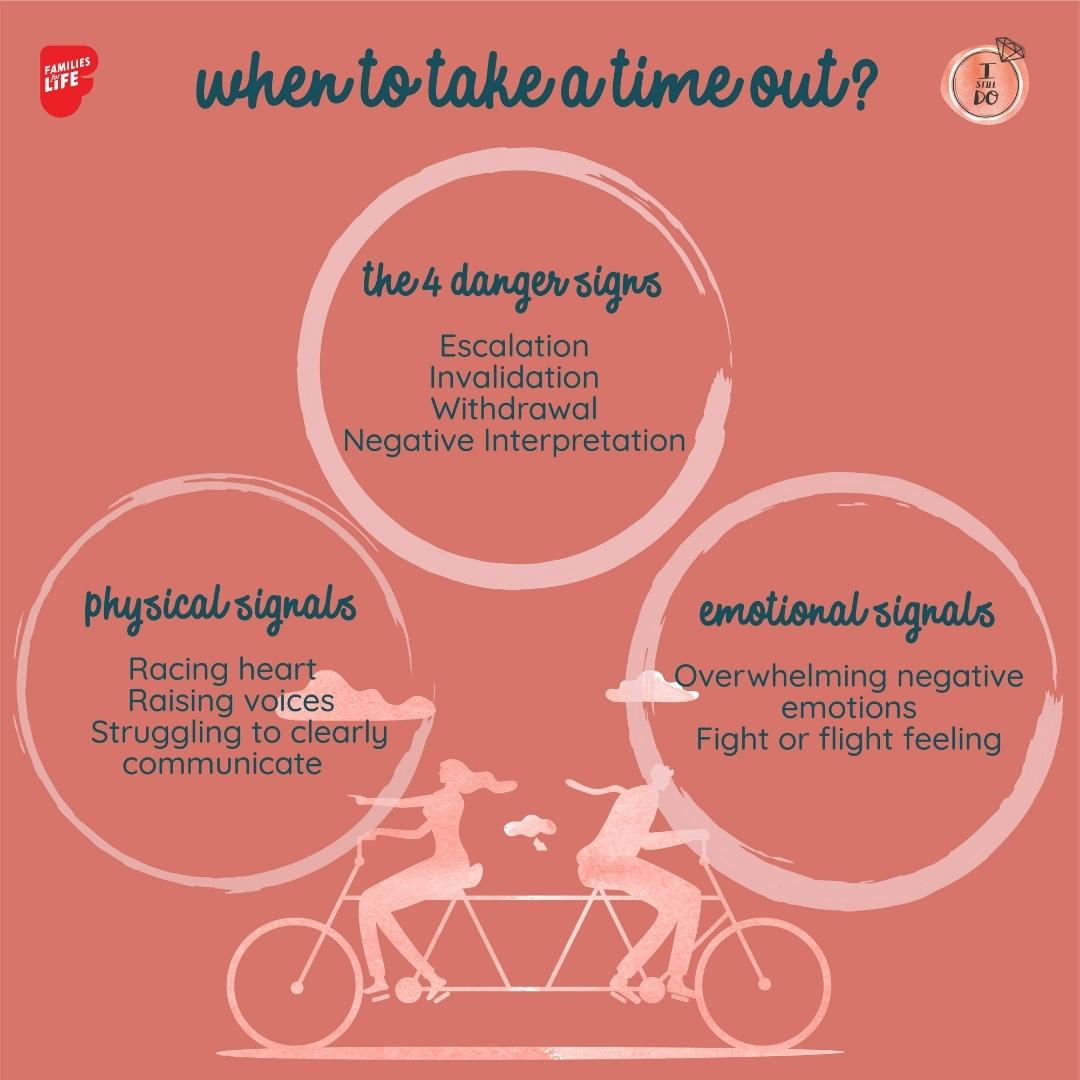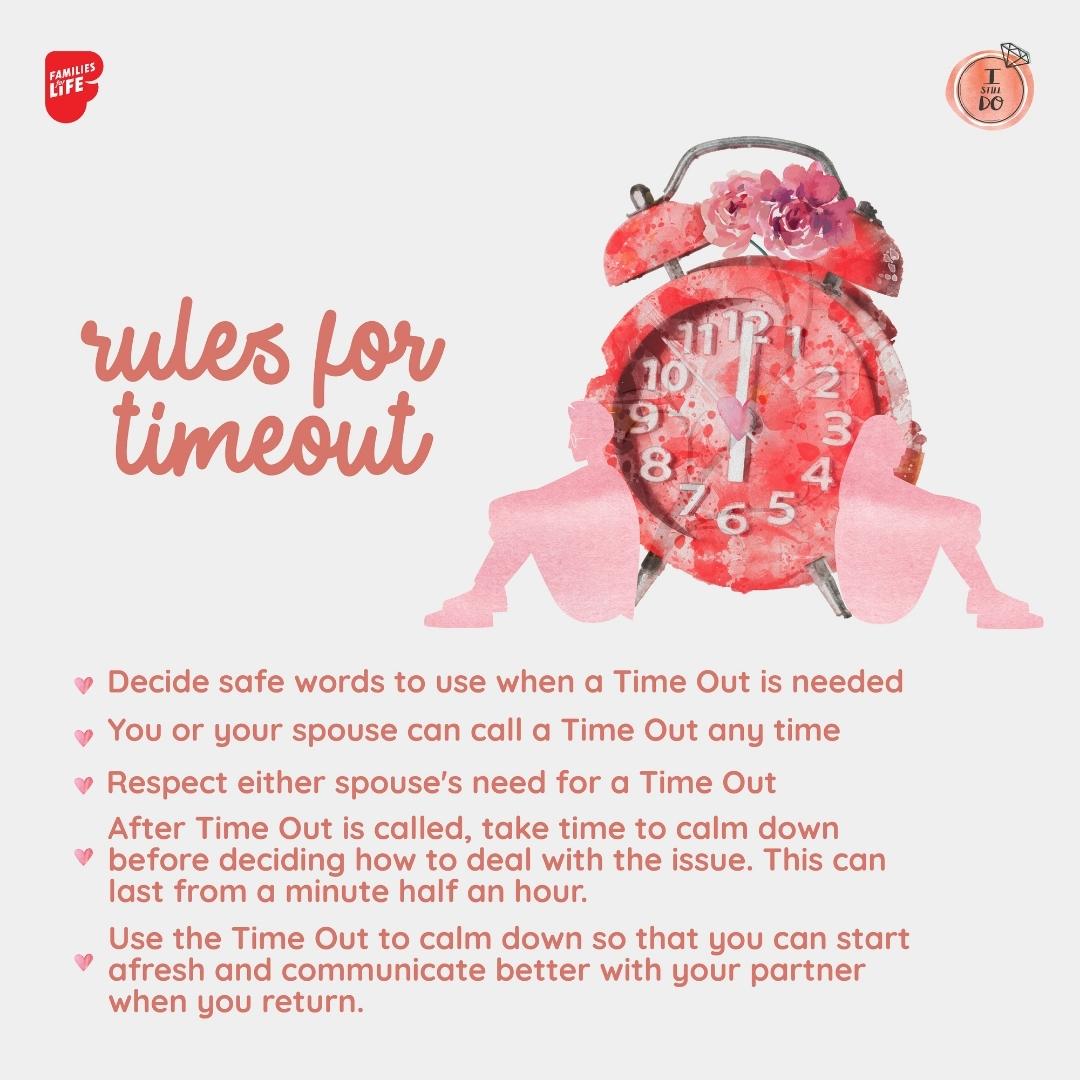Families For Life | Mini Marriage PREP Tips: Time Out Tool to Manage Conflict
Time Out is a simple strategy that will help you manage conflicts by avoiding the negative (and often unintended) momentum that often causes damage to your relationship. If you notice any of the 4 Danger Signs (Escalation, Invalidation, Withdrawal, Negative Interpretation) creeping into your conversations, then it may be time to tap the brakes and take a Time Out.

There are both emotional and physical signals that a Time Out might be needed: heart racing, raising your voice, getting overwhelmed with negative emotions, struggling to communicate clearly, or a fight-or-flight feeling. Use the Time Out to cool off, lower the intensity, or to process if a lot of information has been delivered too quickly. A simple pause in the action is often all that is needed for each of us to compose ourselves and resume the conversation in a healthy and productive manner.
Rules for Time Out

The rules for a Time Out during an argument or stressful discussion are simple.
Decide with your partner which safe words you’ll use when a Time Out is needed. You can simply use the phrase “Time Out” or pick a random word that only the two of you will recognise. This random word can be something lighthearted that may help break the tension when the Time Out is called.
Either you or your partner can call a Time Out at any time.
Both you and your partner agree to respect either person’s need for a Time Out.
After Time Out is called, both partners take time to calm down first before they decide how to deal with the issue. A Time Out can last a minute or two, or a half-hour depending on the intensity and the agreed time length.
Use the Time Out to calm down and lower your intensity. Do not use the Time Out to replay the argument over and over in your head. You want to start afresh when you return. You might want to say, “Let’s forget what we both just said and recalibrate and start over.” Or, you may want to discuss the issue again if one of you feels that it’s important to continue the conversation. The key is to keep moving forward, not get stuck in the past. Give it a go. Experience the difference!
If you like what you read, check out other mini marriage PREP tips here!